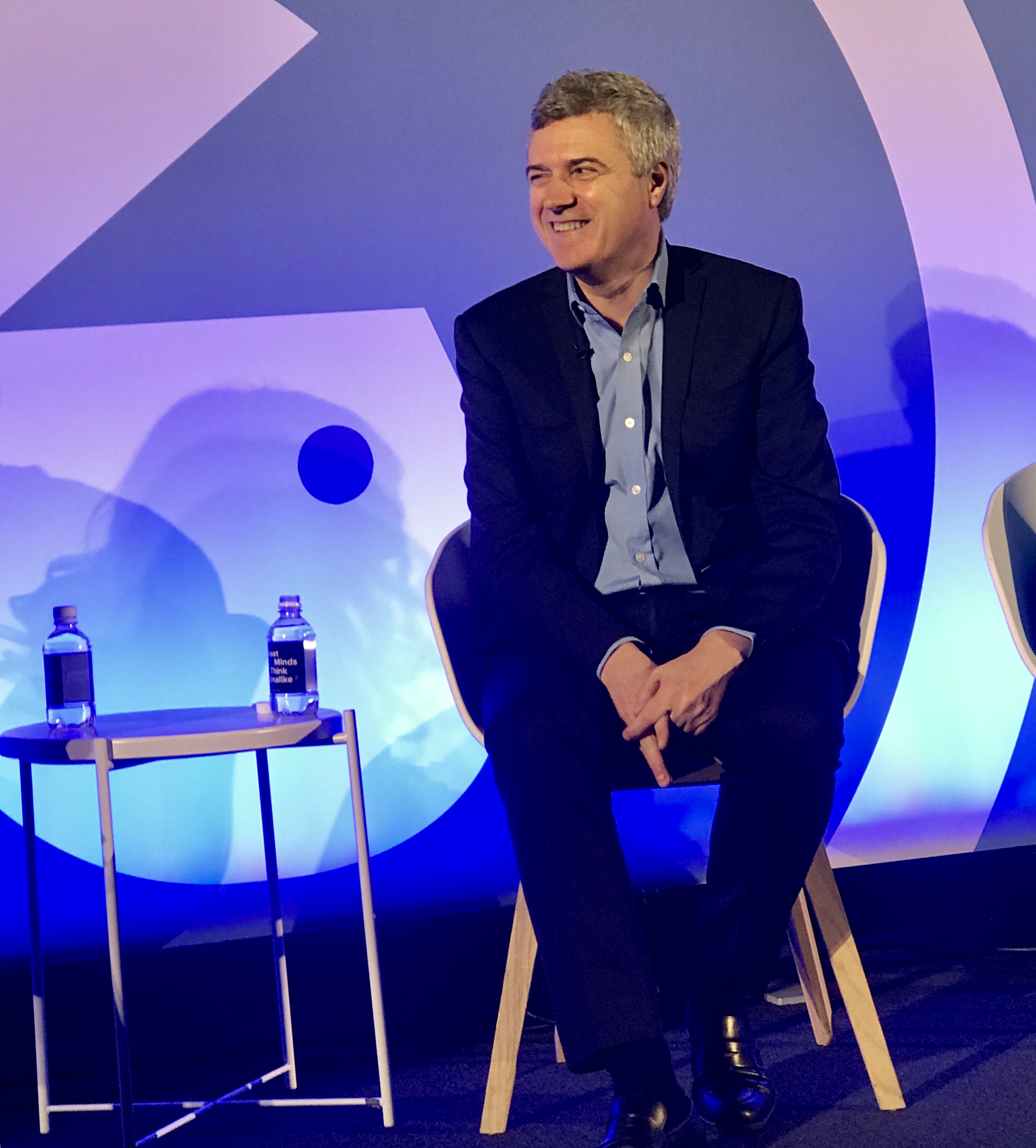WPP boss Mark Read: Our problem wasn’t size, but lack of central management
WPP is through the worst of its agency mergers but still needs to improve its creative output, boss Mark Read has told an industry conference.
Speaking at the Advertising Week Europe gathering in London, WPP’s global CEO Read – who took the organisation’s helm in September after the acrimonious departure of founder Sir Martin Sorrell – was unapologetic about the string of recent mergers which characterised his first few months in charge of the challenged conglomerate.
WPP is among the world’s biggest communications groups, although its market capitalisation has halved over the last two years to around $20bn.
These global mergers included bringing together JWT and Wunderman to create Wunderman Thompson; MEC and Maxus to create Wavemaker; and merging Young & Rubicam with VML to create VMLY&R. Locally The White Agency and Grey merged to create WhiteGrey.
WPP is also looking to sell a majority stake in its research operation Kantar.
Read said: “I’m a believer in the WPP brand and the brands inside the organisation. Just, maybe, not four or five hundred of them.”
Under Sorrell, WPP was managed by a famously small global management team from a townhouse in central London, with most of its global agencies run under seperate leaderships. Read suggested this approach did not allow WPP to be nimble when transformation was needed.
He said: “I don’t think it’s a size issue. Accenture’s got 400,000 people. I think it’s a complexity issue rather than a size issue that made it hard for us to respond. We were structured in a very disaggregated way across the company.
“I think we should be a company, and not a group, able to work together.”
However, he emphasised that the major changes are now behind the company, whose local agencies also include GroupM, Mediacom, Mindshare, Burson-Marsteller, Hill + Knowlton, Landor, Ogilvy, opr, and PPR.
“We were clear in December that the major mergers in the group had taken place and we’d simplified our structure. There will be other things we do to tidy the business up but I think there won’t be more major changes. We wanted to get it out of the way relatively quickly because it causes an intense period of speculation internally and externally that’s not helpful and distracting. We wanted to be able to say there are no more major things planned and move on from there.”
During the session Read was asked by Mumbrella about comments by Unilever marketing boss Keith Weed a fortnight ago that WPP needed to “recreate the creative leading edge of WPP”.
Read said: “We’ve said we want to have the strongest brands creatively and a strong WPP helps Unilever be successful. I may not want him to use exactly that choice of words on a public forum but we’re all on the same page in terms of what we need to do.”
Earlier in the interview he said: “We ought to invest more in creative. I don’t know that it’s about the number of people, but we want WPP to be a creative destination.”
He also appeared to allude to potential creative leadership changes at the top of some of the WPP creative agencies, referencing comments by BBH co-founder John Hegarty.
Discussing WPP’s creation of a new $15m annual investment budget to boost the company’s creative output, Read said: “It’s not going to happen overnight. John Hegarty made a point about holding companies, and how, if fashion companies buy a brand, they hire a new creative director. I don’t think that’s necessarily the one thing you need to do but I do think that brands we have globally – AKQA, Wunderman Thompson, VMLY&R, Grey – should be seen as really strong destinations for creative talent.”
Asked about whether JWT and Wunderman merger will succeed, Read said. “We’ll know if three to five years time.”
He also tackled the issue of how clients work with agencies, urging them to step back from the day-to-day. He said: “I do worry that clients get sucked into the execution and not the strategy. So I think that we can do it, and if we’re not doing a good enough job then clients can tell us, and we’ll up our game.”
Asked about whether scale no longer gives an advantage when it comes to winning media pitches, Read argued: “I wouldn’t agree with that. Scale is expressed differently. Scale was expressed by buying volume and maybe it’s now expressed by access to data, technology scale and buying volume.
“For all we think about digital media, traditional media is still well over half of what clients spend.
“Group M is still an extremely important part of WPP, an extremely important growth driver of the group and continues to perform very strongly.
“I think, actually, scale matters in media as much or more than it ever has done before. The number of creative startups continues, but how many media startups have there been in the last ten years that have achieved any kind of scale? None, frankly, except those incubated by the holding companies.”



Interesting comment about clients getting ‘sucked into execution and not the strategy’. I somewhat agree with that but what use is a strategy if nobody notices the ads? They may not be the most talented agencies in the world, but it is the rigid systems and processes which primarily hold WPP agencies back, not the creative people.